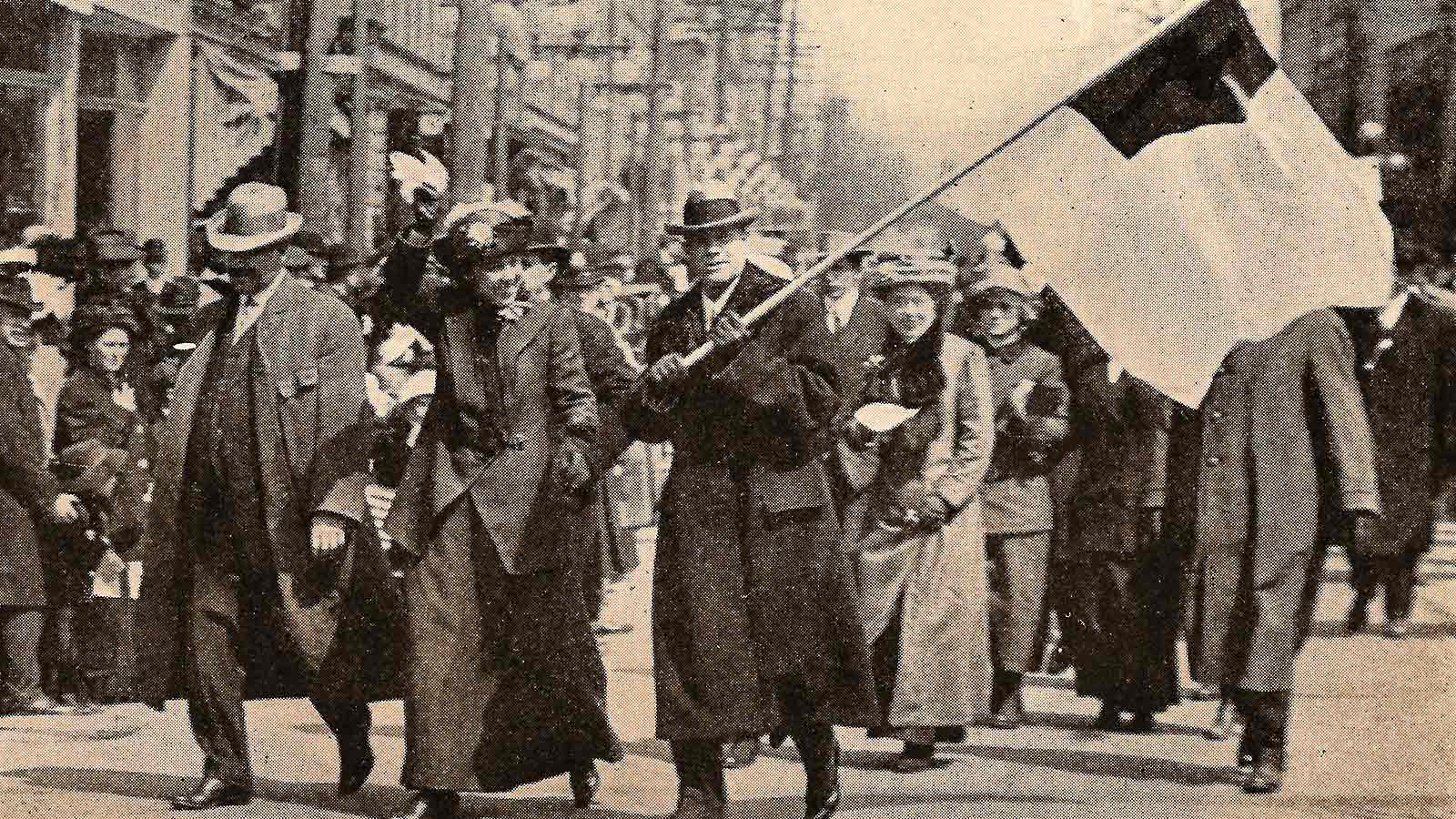Parades During the Tabernacle Meetings
“Parades were used as a way to introduce their meetings to the people of the city. The Wilkes Barre Record gave the following account:
“Circus days never proved more magnetic in drawing people to the city. Every car the traction people could press into service was employed in hauling the enormous suburban traffic. The summer cars were brought out, and every -one packed to the limit. The various delegations began to assemble on the river common as early as ten o’clock. At noon it was impossible to move on River Street, and at the Market Street Bridge, the scene would have rivaled that in a metropolis on election night.
“Mr. Sunday appeared about three minutes ahead of time, walking with Mrs. Sunday, his self-confessed commander-in-chief. Promptly at twelve-thirty, he gave the signal to the chief marshal, and the column platoon of mounted police kept the way clear. A car containing women members of his evangelistic party formed the vanguard. Mr. and Mrs. Sunday and the rest of his party marched in the procession. At one point, the mayor was picked up in a car and taken along to join the procession.
“The main body of the parade was children, although there were thousands of adults, too. Auto trucks and heavy wagons loaded with children too small to march punctuated the line at various points, bearing cards that admonished, ‘CUT OUT BOOZE!’ Nearly everyone carried a banner or flag. Two street sprinklers, hay wagons, carts, and autos of all kinds carried hundreds of little tots.
“The scene at the tabernacle after the parade was over will never be forgotten. The building was packed to the doors with over 8,000, mostly children, and Sunday preached a sermon especially for them. One church seating 2,000 was packed, and still another church was packed, besides the Majestic Theatre, which held 1,500 more. All these meetings were addressed by members of the Sunday party. By this time, it was four o’clock and the party disbanded, and even at this early hour, thousands were unable to get into the meeting.
“When the suggestion was offered at the tabernacle that the Sunday school parade be made an annual event, the entire audience leaped to their feet in acclamation of the proposal.”
Lee Thomas. Billy Sunday Story. Pages 102 and 104

